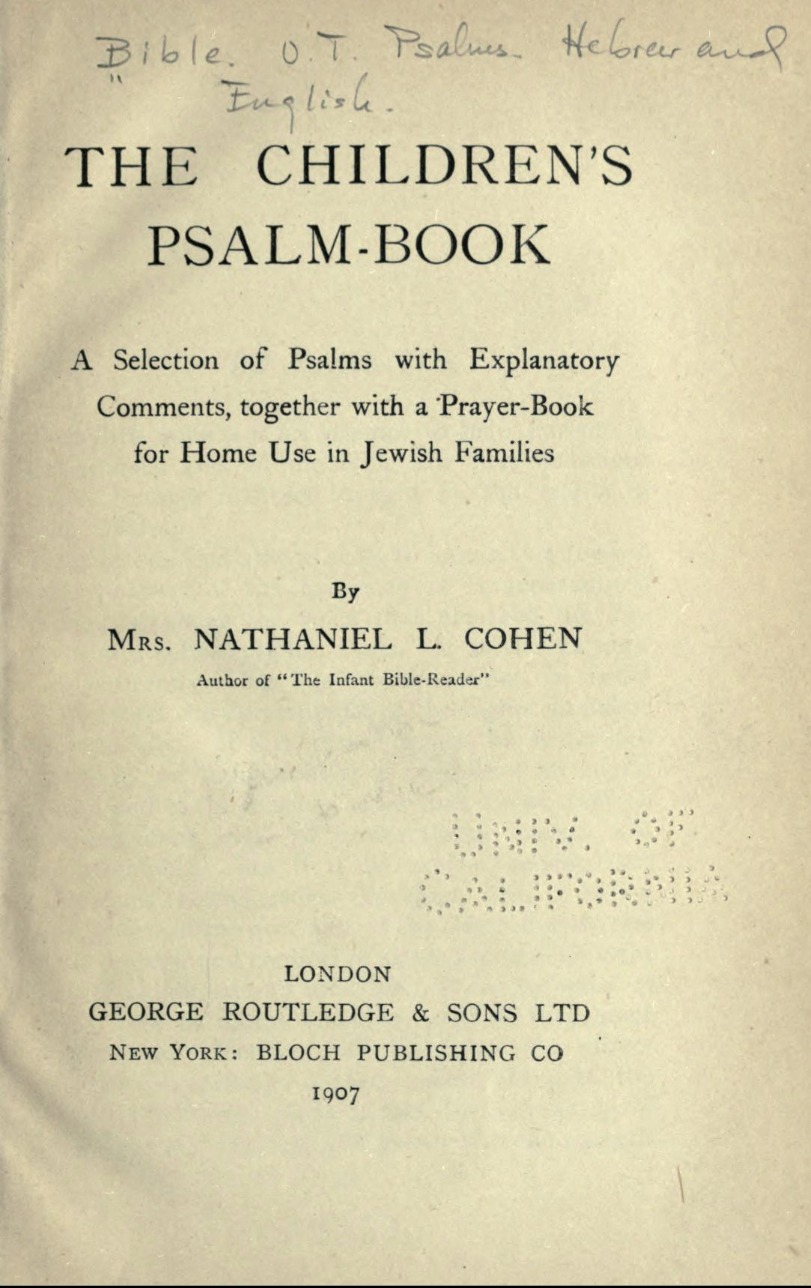the Open Siddur Project ✍︎ פְּרוֹיֶּקט הַסִּדּוּר הַפָּתוּחַ
a community-grown, libre Open Access archive of Jewish prayer and liturgical resources
This project is sustained through reciprocity for those sharing prayers and crafting their own prayerbooks.
Get Involved ✶ Upload Work ✶ Donate ✶ Giftshop בסיעתא דשמיא |
☰︎ Menu | 🔍︎
Search // Main //
📚 Compiled Prayer Books (Siddurim, Haggadot, &c.) // Anthologies of Prayers // Arrangements of Tehillim
Arrangements of Tehillim This is Julia M. Cohen’s The children’s Psalm-book, a selection of Psalms with explanatory comments, together with a prayer-book for home use in Jewish families (1907). The compilation contains a pedagogical essay providing parents guidance for reading the psalms, as well as her translations and commentary on the selected psalms. The prayer-book includes posthumously published translations of Yigdal and Adon Olam by Cohen’s father, Jacob Waley (1818-1873), co-founder of the United Synagogue. . . . 📖 תהילים או לוס סאלמוס; טריסלאד’אד’וס דיל לשון הקדש אין לה לינגואה ספרדית | Psalms in Ladino (Estampado por Ǧ. Griffit, ca. 1852/3)Join us in creating a faithful digital transcription of Tehilim, o los Salmos, trezladados del leshon ha-ḳodesh en la lingua Sefaradit (Ǧ. Griffit, 1852/3). After transcription and proofreading, this new digital edition will be encoded in TEI XML and archived in the Open Siddur database. We are grateful to the Sephardic Studies Collection at the University of Washington Library for imaging this Public Domain work. . . . |

